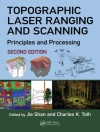Measurement plays a fundamental role both in physical and behavioral sciences, as well as in engineering and technology: it is the link between abstract models and empirical reality and is a privileged method of gathering information from the real world.
Is it possible to develop a single theory of measurement for the various domains of science and technology in which measurement is involved? This book takes the challenge by addressing the following main issues: What is the meaning of measurement? How do we measure? What can be measured?
A theoretical framework that could truly be shared by scientists in different fields, ranging from physics and engineering to psychology is developed. The future in fact will require greater collaboration between science and technology and between different sciences. Measurement, which played a key role in the birth of modern science, can act as an essential interdisciplinary tool and language for this new scenario.
A sound theoretical basis for addressing key problems in measurement is provided. These include perceptual measurement, the evaluation of uncertainty, the evaluation of inter-comparisons, the analysis of risks in decision-making and the characterization of dynamical measurement. Currently, increasing attention is paid to these issues due to their scientific, technical, economic and social impact. The book proposes a unified probabilistic approach to them which may allow more rational and effective solutions to be reached.
Great care was taken to make the text as accessible as possible in several ways. Firstly, by giving preference to as interdisciplinary a terminology as possible; secondly, by carefully defining and discussing all key terms. This ensures that a wide readership, including people from different mathematical backgrounds and different understandings of measurement can all benefit from this work. Concerning mathematics, all the main results are preceded by intuitive discussions andillustrated by simple examples. Moreover, precise proofs are always included in order to enable the more demanding readers to make conscious and creative use of these ideas, and also to develop new ones.
The book demonstrates that measurement, which is commonly understood to be a merely experimental matter, poses theoretical questions which are no less challenging than those arising in other, apparently more theoretical, disciplines.
Spis treści
Part I: General Problems.- 1 Measurability.- 2 Uncertainty.- Part II: Theory.- 3 The Measurement Scale: Deterministic Framework.- 4 The Measurement Scale: Probabilistic Approach.- 5 The Measurement Process.- 6 Inference in Measurement.- 7 Multidimensional Measurements.- Part III: Applications.- 8 Perceptual Measurement.- 9 The Evaluation of Measurement Uncertainty.- 10 Evaluating Inter-Comparisons.- 11 Measurement-Based Decisions.- 12 Dynamic Measurement.- Appendix.- Bibliography.












